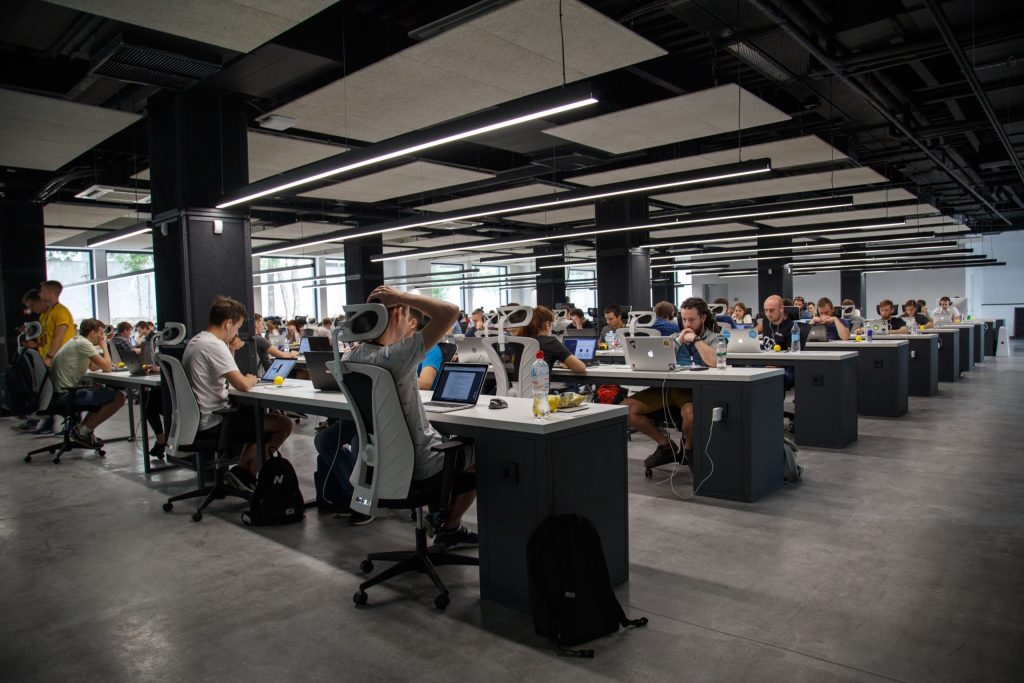The working environment has changed a lot since COVID-19. Before the pandemic, companies could never imagine working from home and not having an office. Some companies didn’t even believe people could be productive at home! But, COVID-19 opened the eyes of a lot of business owners to becoming more flexible with work arrangements.
In this article, we will share some of the top trending flexible work arrangements that we see happening in 2023. These allow your employees to feel cared for, heard and looked after. In return, employees will be happier and stay at jobs for longer.
A hybrid working model.
For many companies, offices were shut during the global pandemic. Because of this, employees got comfortable and used to working from home. They saw that they could remain at home, close to family members and stay productive with work tasks.

With the world back up and running, many employees are asking employers to begin a hybrid working model. This could be different per company, but for many, it’s working several days in the office and working several days at home or even fully working from home.
This gives the employees what they’re after while encouraging a positive workplace environment in the office when they’re together.
But, it’s not all about the employees when it comes to this workplace arrangement. In a recent survey, 90% of HR professionals reported that they rely on hybrid working to recruit and retain talent. The survey found that hybrid work helps address the top three factors contributing to turnover:
- childcare (55%)
- work-life balance (47%)
- mental well-being concerns (47%)
Offering a hybrid working model that works for the individual company is a great way to bring in and keep happy employees.
Getting rid of the 9-5 schedule.
The second arrangement that we see becoming extremely popular is getting rid of the 9-5 schedule. This has been becoming more popular over the years and with the addition of working from home, it only makes sense.
Companies are beginning to take notice of a person’s circadian rhythms and how it can affect work. For example, employees’ peak levels of energy don’t occur until a few hours after the start of a typical workday at 8 am, yet they often have morning meetings in which they are expected to be engaged and participative.

A mid-day energy peak happens around 12 pm and it might be spent on low-value tasks such as catching up on emails, leaving them to complete high-value tasks during their greatest energy dip (3 pm).
If managers are in charge of creating schedules for employees, it’s important to place the correct tasks at the correct time.
Additionally to that, not everyone works best from 9-5pm. Many families have to arrange childcare pick up if they’re working after 5pm due to daycares closing for 5pm for the evening.
All of these things place stress and unneeded anxiety on employees.
One way employers are helping with this is asking employees when they work best and arranging their schedules to match that. If they work best starting from 7am, they can begin work then and leave work at a reasonable time to go pick up the kids.
Flexibility is key in business in 2023.
A shorter work week.
A little variation of the previous arrangement is this one… a shorter work week. Some companies are implementing a 4 day work week and offering their employees either 4 ten hour shifts to make it to 40 hours or 4 eight hour shifts to make it to 32 hours a week.
It all depends on the company and what offering or service that they provide. Some work schedules will work better for others. But, the main point here is that people are focusing more and more on work life balance. They want to ensure that they are enjoying their life outside of work.
When companies care about that and promote a healthy work life balance, employees and candidates take notice.
If the two options above don’t work for your company, here are a couple more alternatives to the standard 5-day, 40-hour work week:
- 4 x 10-hour days (40 hours)
- 5 x 7.6 hour days (38 hours)
- 5 x 6-hour days (30 hours)
Wellness is at the forefront of everything.
At the end of the day, it’s clear to us that wellness is at the forefront of everything in 2023. People are taking notice of their wellbeing and what works and doesn’t work for them and their lives.
If you’re curious to learn more flexible work arrangements that you can add to your company this year, reach out to us today! We’d be happy to share some more wisdom with you and your team.



